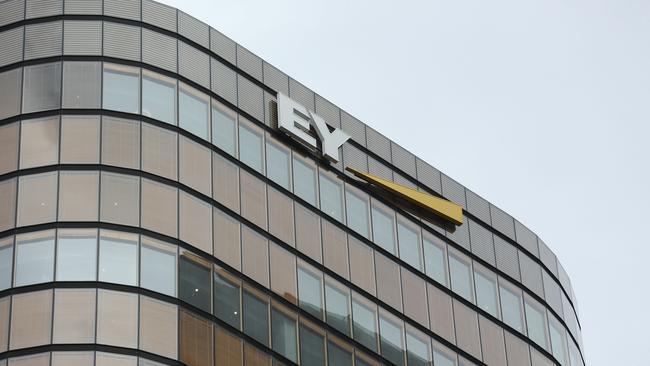EY launches AI tools for audit and assurance
The audit and consulting giant has spent billions on its artificial intelligence tools, with the firm aiming to boost productivity and slash burnout.

Professional services giant EY Oceania is rapidly rolling out generative AI tools across its audit and assurance practice in a bid to stop the churn and burnout of staff and put the firm ahead of rivals.
Thirty AI tools have been rolled out across the sprawling audit and consulting giant.
EY believes it is now outpacing rival firms on the cost of doing work, with better and faster output.
The costly work of audit and assurance, which typically requires high staff workloads around key dates in the financial calendar, is a major focus for the firm.
EY digital assurance leader Christina Larkin said the EYQ AI platform now being rolled out in the audit business would change the game for the firm’s staff.
The new program streamlines accounting searches for staff, offering the nearly 140,000 audit staff at EY a wealth of resources.
This matters for the firm because of the competitive audit market and the high attrition rate of accounting staff who leave the profession, citing burnout.
“I see the reactions from auditors who say this is game-changing,” Ms Larkin said.
“It takes away the administrative parts of the job and is making it far more focused on risk.
“It’s allowing the auditor to get back to what they should be doing which is focusing on risk.”

The Australian launch of EYQ comes as the firm rolls out AI tools across its global operations, after investing $1bn in its assurance technology stack.
Ms Larkin said the power of the new tools was already clear.
She said partners at EY had already highlighted how it made calculating impairments far less ponderous.
Several of EY’s competitors have also rolled out their own AI powered tools.
Deloitte is using a tailored version of Microsoft’s CoPilot. However, Ms Larkin said EY was ahead of the pack.
She said EYQ integrated with existing tools, rather than sitting as a separate program.
She said this would allow staff to move into “overseeing the process” rather than directly actioning items.
“It’s changing what we expect of auditors and with that comes a quite significant amount of upskilling and training we have to do,” she said. “Its saving a significant amount of time from a client perspective.”
Ms Larkin said EY was also looking at how these new technologies would supplement the firm’s work in climate reporting, as the deadline for major corporates to unveil their emissions scorecards loomed.
She said reporting was still “very immature” but noted the AI platforms would be “leveraged” to scrutinise disclosures.
Ms Larkin said the firm had run these changes to its audit practice past the Auditing and Assurance Standards Board, a key regulator for the sector.
She said the regulator was comfortable with the rollout, noting its interest in improving “coverage of risk”.
“None of this moves very fast from a regulatory perspective. I think there’s certain people who’d love it to move faster,” Ms Larkin said.






To join the conversation, please log in. Don't have an account? Register
Join the conversation, you are commenting as Logout